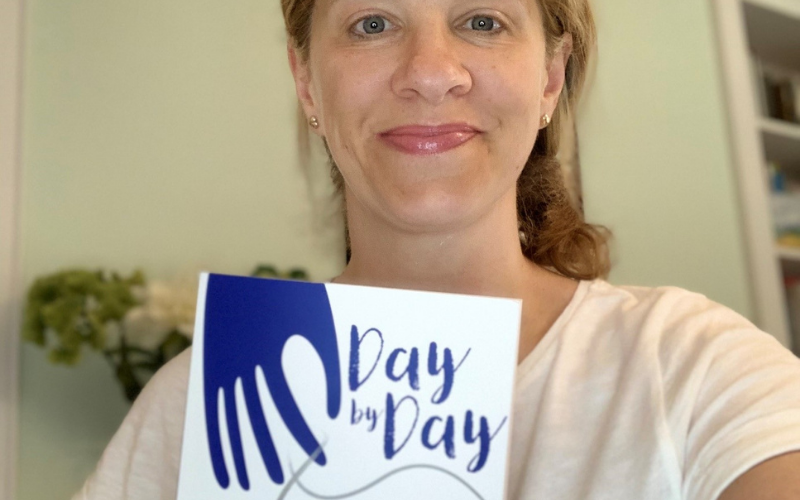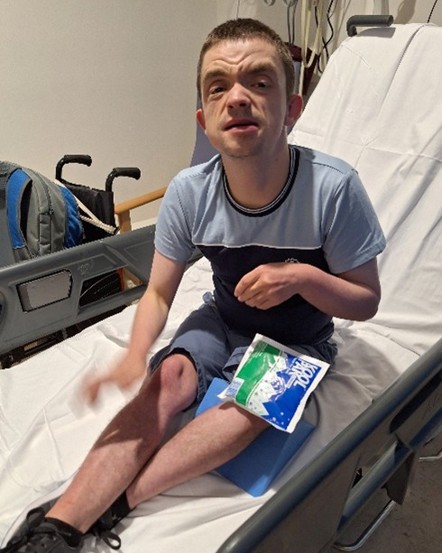Let go of Guilt!

Jo Griffin
Joanna Griffin is mum to three boys including her eldest who has special needs. She is also a Chartered Counselling Psychologist and Founder of www.a...

In my research into parent carer emotional wellbeing, guilt frequently reared its ugly head. Parents reported feeling guilty that they hadn’t done enough therapy, guilt about siblings, guilt for taking time for themselves and even guilty about how they’re feeling in the first place. I talk about the many complex emotions parent carers can experience in my book Day by Day: Emotional Wellbeing in Parents of Disabled Children (Link in bio).
In an online survey I undertook on my website, www.affinityhub.uk, 66% of respondents reported feeling guilty about their child's disability. Although this may seem irrational to an outside observer, there is a primal desire to protect our children at all costs. On receiving unexpected news it can feel like we have failed to do this. Logically, that is out of our hands and not our responsibility.
Most parents do everything they can to help their child and yet we can still take on the mantel of guilt.
We can often feel responsible for our child and the challenges they face. I believe this is partly in response to a helplessness that parents may experience when something happens that is out of their control. By feeling guilty it takes back some control for the parent, however inappropriately.
‘People often use the strategy of blaming themselves to protect their cherished beliefs about the controllability, predictability and justice of the world. By blaming themselves they are able to hang on to their beliefs.' "After all, if I am to blame, I could have prevented the…event from happening. If I could have prevented it from happening, then my sense of control would be maintained" (Joseph, 2011).
It is hard to acknowledge that sometimes, despite all our best efforts, we cannot protect our children from difficulties.
At times, when we don't know how best to support our child, it can layer on the guilt again. But we can't be expected to be trained doctors, health visitors, midwifes, social workers and psychologists all rolled into one.
Some of the behaviours or difficulties children face are also part of typical development. However, because for parents of disabled children they already have a heightened sensitivity to their child’s needs, they take on responsibility for any negativity.
Barrett (2010) states: 'Parents often assume responsibility for every additional problem their child suffers. If he is miserable it is because as parents they failed to make him happy and if their child is ill, it is because they failed to take adequate care of him. If any or all of these things were to happen to a [non-disabled] child you would, in all probability, simply accept them as things to be expected when you have children.'
Why should it be any different in the case of a disabled child?
Guilt may be exacerbated by society’s expectations and idealisations of the parent role; along with the judgement parents experience. This includes comments from others about their child’s behaviour or their parenting skills. Prejudice and stigma are still rife and negatively impact all aspects of life.
If there was greater tolerance of difference and disability in society at large; there would be less of a pressure on us as parents to be ‘perfect’. As the psychologist, Donald Winnicott, wrote in his seminal work, it would be ok for us to be ‘good enough’.
Guilt isn’t warranted, and it doesn’t help parent carer wellbeing. We’re all doing our best in an imperfect system and world; there is no need to add guilt to our mental load. We deserve to treat ourselves with a little more self-compassion and understanding.
Let go of guilt!
References:
Barrett, M. (2010) You and Your Disabled Child: A practical guide for parents, West Sussex: Woodfield Publishing Ltd
Joseph, S. (2013) What doesn’t kill us: a guide to overcoming adversity and moving forward. London: Piatkus


